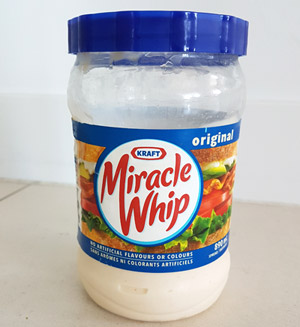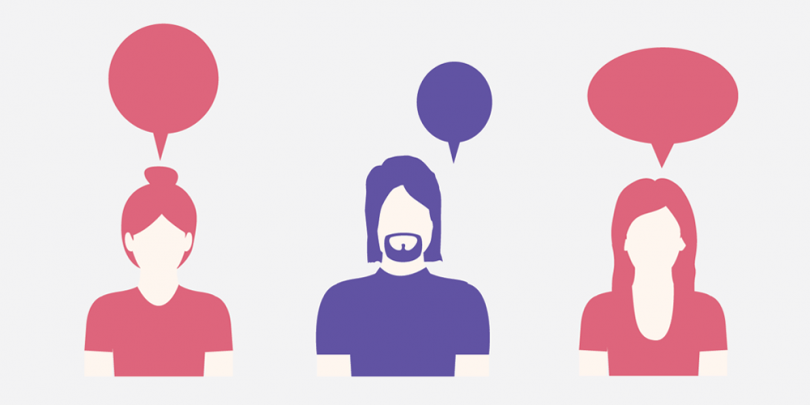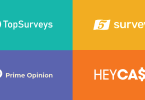What are a customers’ needs and desires? How is the competition attracting their attention? Market research can help companies satisfy consumer needs and wants by examining their customer’s purchasing habits, and feedback about products, including perceptions about value. One way to do this is to bring together a focus group of customers willing to provide their suggestions.
Some of the largest companies in the United States have used focus groups to significantly improve their products and increase their market share.
Here are some major companies who have utilized focus groups in ways that had a big impact on their business.
 Today’s Twitter is a big pivot from what was originally a platform for sharing podcasts. Founders Biz Stone and Evan Williams recognized the potential of podcasts to take off in popularity, and wanted to build a platform that revolved around them. They were beaten to the market by Apple, which released podcast capability through iTunes that same year, but they refused to give up.
Today’s Twitter is a big pivot from what was originally a platform for sharing podcasts. Founders Biz Stone and Evan Williams recognized the potential of podcasts to take off in popularity, and wanted to build a platform that revolved around them. They were beaten to the market by Apple, which released podcast capability through iTunes that same year, but they refused to give up.
Stone and Williams engaged in market research to find out what tech users were looking for in social networks.1 They began by using focus groups to find out what Facebook users were dissatisfied with when using the platform. They discovered that the number one complaint was that the news feed was too cluttered and difficult to keep up with. Using this feedback, they came up with the idea behind Twitter – a streamlined platform for people to share articles, entertainment, news and opinions in 140 characters or less (though this was raised to 280 characters in 2018).
Disney
 Disney has established regular “kid-centric” focus groups consisting of preschoolers and young children. They accomplished this by partnering with preschools and primary schools near the company headquarters in Los Angeles. In exchange, the schools receive donations and the children receive Disney stickers for their participation.2
Disney has established regular “kid-centric” focus groups consisting of preschoolers and young children. They accomplished this by partnering with preschools and primary schools near the company headquarters in Los Angeles. In exchange, the schools receive donations and the children receive Disney stickers for their participation.2
The goal of these focus groups is to discover what kind of characters the “toddler-to-kindergartner crowd” likes. In addition, Disney also gets feedback about ongoing TV series and opinions on the “after-marketing”, or the sale of Disney-themed toys and videos. The children’s reactions and comments about the merchandise provide invaluable help in making marketing decisions.
Kraft Foods
 Big companies like Kraft Foods have tapped their large pool of employees to create focus groups designed to improve their marketing. Like most Americans, employees are well-aware of the Kraft Foods brand (even before becoming workers), giving the company a valuable starting point. In the past, employees were encouraged to use Kraft’s own social networking platform, Big Talk Online, to share in the decision making of the company through moderated group discussions.
Big companies like Kraft Foods have tapped their large pool of employees to create focus groups designed to improve their marketing. Like most Americans, employees are well-aware of the Kraft Foods brand (even before becoming workers), giving the company a valuable starting point. In the past, employees were encouraged to use Kraft’s own social networking platform, Big Talk Online, to share in the decision making of the company through moderated group discussions.
Today, 2,000 employees use an app called FOODii that allows them to input ideas for new Kraft products. Besides giving the company valuable marketing research results, the initiative enables employees to make a difference with their opinions. Kraft also utilizes consumer focus groups such as the “Idea Café”3 that gathers 50 customers at a time to work with moderators to develop and fine-tune marketing for the company.
Southwest Airlines
 Southwest holds regular focus groups with employees to find out what their customers seem to like and what their top complaints are. They go even further than Kraft in terms of tapping the potential of employees, by using them in advertisements. Flight attendants have starred in Southwest commercials over the years, and recent TV commercials have featured baggage handlers as well.
Southwest holds regular focus groups with employees to find out what their customers seem to like and what their top complaints are. They go even further than Kraft in terms of tapping the potential of employees, by using them in advertisements. Flight attendants have starred in Southwest commercials over the years, and recent TV commercials have featured baggage handlers as well.
The airline uses technology to mine the suggestions and advice of their employees4. The company intranet, SWA Life, previews ad campaigns before they go live, in order to collect employee input. A Southwest representative was quoted as saying that their employees: “…are delivering the message for Southwest on the ground. They are our best advocates.”
Frito-Lay
 Frito-Lay, a PepsiCo company, wanted to increase their market share, so they decided to hold a contest for their customers. People were asked to send in their idea for the best new potato chip flavor to compete for a million-dollar prize5. This innovate way of conducting research provided the company with valuable feedback about what customers wanted in a potato chip.
Frito-Lay, a PepsiCo company, wanted to increase their market share, so they decided to hold a contest for their customers. People were asked to send in their idea for the best new potato chip flavor to compete for a million-dollar prize5. This innovate way of conducting research provided the company with valuable feedback about what customers wanted in a potato chip.
Frito-Lay named the contest, “Do Us a Flavor”, and marketed it toward youth using social media, adding an extra “cool factor” to its potato chips. On the company’s Facebook page, anyone could enter their suggestion for a new flavor and get rewarded with a shareable image of their own personal potato chip bag. The “like” button on each photo was turned into an “I’d Eat That” button. In essence, Frito-Lay created an online focus group in which consumers were happy to participate. A fringe benefit is that it served as a running advertisement for the product.
Future Roles of Focus Groups
These major brands have realized the importance of focus groups in planning their advertising strategies. In the case of Frito-Lay, their marketing initiative actually turned into a large focus group. Due to advances in technology, marketing and advertising are increasingly becoming web-based, and customer research is following along. The focus group of today has expanded its reach and has become more interactive than ever.
Top Focus Group Companies
As the case studies above demonstrate, focus groups that are conducted properly and ask the right questions can yield hugely beneficial and valuable information for a company. Although some studies are conducted internally, focus groups are more commonly held with groups of consumers recruited by market research companies. These consumers only have to provide their basic information in order to be added to a market research company’s database of participants.
If you’re looking to find focus groups in your area to participate in, consider online options. Participation in such groups is typically remunerated with a cash incentive, although gift cards may also be offered.
The following companies offer focus groups online that just about anyone can join:
You can find more information about paid focus groups here.
In Conclusion
Every product and service has its own niche, or place in the market, and there are reasons why certain customers are attracted to certain products. The goal of every company is to find out what those reasons are so that they can access their customers better, thereby increasing sales. When they understand why customers are, or are not, using their products, they then have the tools to grow their customer base.6 Marketing research arms businesses with the information they need to deliver on what consumers want and the case studies above are examples of just that.
» Find focus groups in your area
Sources:
1. https://blog.marketresearch.com/blog-home-page/bid/334826/How-3-Companies-Used-Market-Research-to-Pivot-their-Businesses
2. https://blog.marketresearch.com/blog-home-page/bid/258847/Disney-s-Kiddie-Focus-Groups-MarketResearch-com
3. http://imblog.ideaglow.com/how-kraft-foods-continuously-innovates-with-an-idea-management-system/
4. https://adage.com/article/news/marketers-tap-employees-ads-focus-groups-brand-ideas/146943
5. https://globalyouth.wharton.upenn.edu/articles/lays-lesson-in-brand-awareness//
6. https://www.entrepreneurshipinabox.com/80/market-research-what-is-it-benefits-process-and-information-sources/







